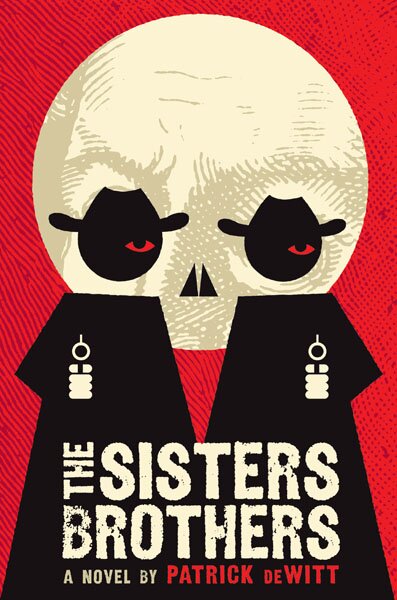Novelist Patrick deWitt speaks at the University Bookstore on May 18, 2011, at 7 p.m.
 Patrick deWitt’s novel The Sisters Brothers opens in Oregon City in 1851, and from the first words there’s something head-tiltingly odd to the scrupulously “authentic” narrative–“I was sitting outside the Commodore’s mansion, waiting for my brother Charlie to come out with news of the job and I was cold and for want of something to do I studied Charlie’s new horse, Nimble. My new horse was called Tub.”
Patrick deWitt’s novel The Sisters Brothers opens in Oregon City in 1851, and from the first words there’s something head-tiltingly odd to the scrupulously “authentic” narrative–“I was sitting outside the Commodore’s mansion, waiting for my brother Charlie to come out with news of the job and I was cold and for want of something to do I studied Charlie’s new horse, Nimble. My new horse was called Tub.”
It’s possible that the narrator, Eli, doesn’t realize how drily funny his recounting of the horrific events that ensue are, but I think deWitt probably does. (John C. Reilly liked Eli so much he optioned the story and will star as the character.)
Eli and Charlie Sisters are two hardcases for hire, mostly hired by the Commodore to erase people he makes the appearance of having been done wrong by. By page 8, the Sisters brothers have their job in front of them: to travel to San Francisco, California, and kill a prospector by the name of Hermann Kermit Warm.
Their intelligence on the matter states that while Warm is small in stature, “he will not be teased about his size. I have seen him fight several times, and though he typically loses, I do not think any of his opponents would wish to fight him again. He is not above biting, for example.”
Because it is 1851, there are no direct flights from Oregon to California, and so some 200 pages pass in picaresque adventure just getting to San Francisco, where the mystery of Warm’s death sentence is revealed, and, if you can easily envision someone scratching through their skin, you may hurry along more than usual.
People are calling the book “cowboy noir,” which is close but doesn’t quite get to the unique assemblage deWitt has managed. The heart of the book is taken up by the uneasy but close relationship Eli and Charlie have, the sibling rivalry and private judgements. Charlie is the more suited to shooting people remorselessly; Eli is enraged by any attack on Charlie. Yet, except for the slaughter and thievery, they seem like good guys–dogged in their pursuits, tough on a bottle.
Eli is a soft touch, as such things go: “I had never been with a woman for longer than a night, and they had always been whores. And while throughout each of these speedy encounters I tried to maintain a friendliness with the women, I knew in my heart it was false, and afterward always felt remote and caved in.”
He also thinks very little of the man who has brought his son to see a duel, so he can see a man killed. Still, his main concern is what their employment is doing to the both of them, and he has time–in between run-ins with crazed prospectors who brew dirt for coffee, trials in dentifrice and dental surgery, and a short-lived experiment wearing a blue sash–to ruminate on what has made the two of them what they are (a difficult childhood, for one).
DeWitt has a way of parceling out these clues to the brothers’ characters amid the muck and guts of an earlier, much rougher time. Sometimes they come during a droll attempt to order a meal with vegetables. Sometimes while he’s working on gouging out Tub’s infected eye with a spoon. In the end, the book achieves a sort of triangulation: it stinks like history, though it’s an invented past, to suit a modern sensibility perhaps not quite sure of the present.
In connecting these points for his corpse diorama, deWitt creates an allegory inverse to The Pilgrim’s Progress. Here, you are constantly reminded that this world is the world to which you have come:
Crows and gulls fought over what was left, hopping and pecking, the clammy flesh gone purple, the wind coating it in sand, and the flies insinuating themselves where they could. I felt San Francisco standing behind me but I never looked back, and I thought, I did not enjoy my time here.